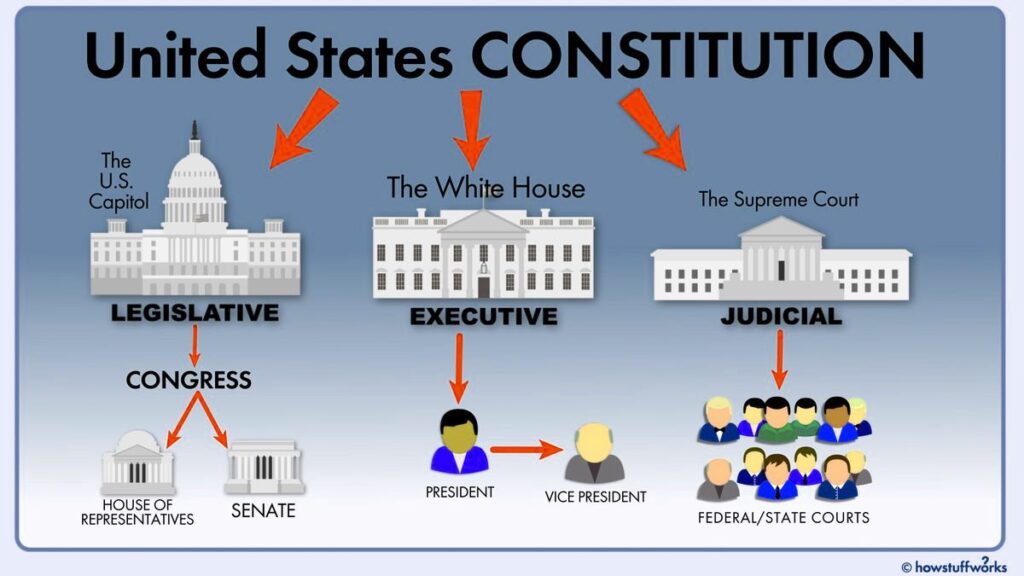TL;DR: Four Charged in Nvidia Chips and Supercomputers Smuggling Case
- Four individuals indicted for smuggling Nvidia chips and supercomputers to China.
- Allegations include using a sham real estate company and falsifying shipping documents.
- The defendants reportedly received nearly $3.9 million for their activities.
- The case raises significant national security concerns regarding advanced technology exports.
- Potential penalties include up to 20 years in prison for the defendants.
Overview of the Indictment
In a significant crackdown on illegal technology exports, U.S. authorities have charged four individuals in connection with a scheme to smuggle advanced Nvidia chips and supercomputers to China. The indictment, unsealed in federal court, alleges that the defendants conspired to illegally ship approximately 400 Nvidia A100 GPUs, 50 of the newer H200 chips, and 10 Hewlett Packard Enterprise supercomputers. This operation reportedly took place as recently as July 2025 and is part of a broader government initiative to prevent advanced AI technology from falling into the hands of foreign adversaries.
The indictment highlights the defendants’ use of a sham real estate company based in Florida to facilitate their operations. This company allegedly served as a front for purchasing the restricted technology, which is critical for developing artificial intelligence systems. The U.S. government has been increasingly vigilant about enforcing export controls on advanced semiconductors, particularly those that could be utilized for military or surveillance purposes by the Chinese government.
Federal prosecutor Noah Stern emphasized the seriousness of the offense, noting that the chips in question were among Nvidia’s most advanced at the time of export. The indictment reflects ongoing concerns about the potential military applications of such technology, particularly in the context of U.S.-China relations.
Details of the Defendants
The indictment names four individuals involved in the smuggling operation: Hon Ning Ho, Brian Curtis Raymond, Cham Li, and Jing Chen. Each defendant played a distinct role in the conspiracy, contributing to the procurement and exportation of the advanced technology.
Hon Ning Ho
Hon Ning Ho is described as the ringleader of the operation. His leadership role involved orchestrating the logistics of the smuggling activities and overseeing the financial transactions associated with the illegal exports. Ho’s connections and experience in the technology sector reportedly facilitated the acquisition of the Nvidia chips and supercomputers.
Brian Curtis Raymond
Brian Curtis Raymond operated a company that specialized in reselling Nvidia chips. His involvement in the conspiracy included using his business to source the restricted technology and facilitate its sale to Chinese companies. Raymond’s release on bond following his arrest suggests that he may be cooperating with authorities in their investigation.
Cham Li
Cham Li is alleged to have been directly involved in the logistics of shipping the technology to China. Prosecutors have indicated that Li’s text messages revealed his awareness of the export controls and his attempts to circumvent them. His connections to hardware distribution companies provided a means to facilitate the smuggling operation.
Jing Chen
Jing Chen’s role in the conspiracy remains less defined in the indictment, but he is implicated in the overall scheme. His arrest, along with Ho and Li, indicates a coordinated effort among the defendants to engage in illegal activities related to advanced technology exports.
Allegations of Smuggling Activities
The indictment outlines several key allegations regarding the methods employed by the defendants to smuggle Nvidia chips and supercomputers to China.
Use of a Sham Real Estate Company
The defendants allegedly established a sham real estate company in Florida to disguise their activities. This company served as a front for purchasing Nvidia chips, allowing them to bypass regulatory scrutiny associated with direct technology sales. The use of such a company highlights the lengths to which the defendants went to facilitate their illegal operations.
Methods of Shipping to China
The hardware was reportedly shipped to China using falsified customs paperwork, with shipments routed through Thailand and Malaysia. These countries have been identified as hotspots for chip smuggling, and the defendants’ choice to utilize these routes reflects a calculated strategy to evade detection by U.S. authorities. The manipulation of shipping documents is a critical aspect of the allegations, as it underscores the defendants’ intent to deceive regulators.
Types of Hardware Involved
The indictment specifies the types of advanced technology that were the focus of the smuggling operation.
Nvidia A100 GPUs
The Nvidia A100 GPUs are among the most advanced chips available, widely used in AI applications, including machine learning and data analytics. Their capabilities make them highly sought after by organizations looking to develop cutting-edge technology. The indictment alleges that approximately 400 of these GPUs were exported to China, raising concerns about their potential use in military applications.
Nvidia H200 Chips
The newer Nvidia H200 chips are also implicated in the smuggling case. These chips represent the latest advancements in AI technology and are critical for developing sophisticated AI systems. The attempt to smuggle 50 of these chips underscores the urgency and scale of the defendants’ operations.
Hewlett Packard Enterprise Supercomputers
The indictment also mentions the attempted export of 10 Hewlett Packard Enterprise supercomputers, which contain Nvidia H100 chips. These supercomputers are designed for high-performance computing tasks and are essential for various applications, including scientific research and AI development. The potential use of these systems by Chinese entities poses significant national security risks.
Financial Transactions and Payments
The financial aspects of the smuggling operation are detailed in the indictment, revealing the scale of the defendants’ activities.
The indictment alleges that two undisclosed Chinese companies paid the defendants nearly $3.9 million for their smuggling efforts. This substantial sum reflects the high demand for advanced technology in China, particularly in the context of AI development. The financial transactions involved in the scheme further illustrate the organized nature of the conspiracy and the potential profits that motivated the defendants.
Government’s Stance on Export Controls
The U.S. government’s response to the smuggling case is indicative of its broader stance on export controls, particularly concerning advanced technology.
In recent years, the U.S. has implemented a series of export control regulations aimed at preventing foreign adversaries, particularly China, from acquiring advanced semiconductors. These regulations are designed to slow down China’s progress in developing AI systems that could be used for military applications, surveillance, and cybersecurity.
The indictment of the four defendants aligns with the government’s ongoing efforts to enforce these regulations and hold individuals accountable for violating them. Federal prosecutors have emphasized the seriousness of the offense, highlighting the potential implications for national security.
Implications for National Security
The smuggling case raises significant concerns regarding national security, particularly in the context of U.S.-China relations.
The advanced technology involved in the smuggling operation has the potential to enhance China’s military capabilities and surveillance capabilities. The U.S. government views the acquisition of such technology by foreign adversaries as a direct threat to national security, prompting increased scrutiny of export controls and enforcement actions.
The indictment serves as a reminder of the ongoing challenges posed by illicit supply chains and the need for robust enforcement mechanisms to prevent sensitive technology from falling into the wrong hands. As the global race for AI dominance continues, the implications of this case may reverberate throughout the technology sector and beyond.
Overview of the Indictment
The indictment against Hon Ning Ho, Brian Curtis Raymond, Cham Li, and Jing Chen outlines a coordinated effort to smuggle advanced Nvidia chips and supercomputers to China. The use of a sham real estate company and falsified shipping documents underscores the lengths to which the defendants went to evade detection. With potential penalties of up to 20 years in prison, the case highlights the serious nature of violations related to export controls and national security.
Potential Legal Consequences
The defendants face a range of legal consequences stemming from the indictment, with charges related to violating export control laws.
Each defendant could face up to 20 years in prison if convicted on the most serious charges. The severity of the penalties reflects the government’s commitment to enforcing export controls and deterring similar illegal activities in the future. Additionally, the case may prompt further investigations into other individuals or entities involved in the smuggling operation.
The legal proceedings will likely unfold over the coming months, with the potential for plea deals or cooperation agreements as the defendants navigate the complexities of the legal system. The outcome of this case may set precedents for future enforcement actions related to technology exports.
Types of Hardware Involved
The indictment specifically identifies the types of advanced technology that were the focus of the smuggling operation.
Nvidia A100 GPUs
The Nvidia A100 GPUs are among the most advanced chips available, widely used in AI applications, including machine learning and data analytics. Their capabilities make them highly sought after by organizations looking to develop cutting-edge technology. The indictment alleges that approximately 400 of these GPUs were exported to China, raising concerns about their potential use in military applications.
Nvidia H200 Chips
The newer Nvidia H200 chips are also implicated in the smuggling case. These chips represent the latest advancements in AI technology and are critical for developing sophisticated AI systems. The attempt to smuggle 50 of these chips underscores the urgency and scale of the defendants’ operations.
Hewlett Packard Enterprise Supercomputers
The indictment also mentions the attempted export of 10 Hewlett Packard Enterprise supercomputers, which contain Nvidia H100 chips. These supercomputers are designed for high-performance computing tasks and are essential for various applications, including scientific research and AI development. The potential use of these systems by Chinese entities poses significant national security risks.
Conclusion: The Implications of the Nvidia Smuggling Case
The indictment of four individuals for smuggling Nvidia chips and supercomputers to China underscores the ongoing challenges posed by illicit technology exports. As the U.S. government continues to enforce export controls, the implications for national security and the technology sector are profound.
Legal Consequences and National Security
The potential legal consequences for the defendants serve as a warning to others who may consider engaging in similar activities. The case highlights the importance of robust enforcement mechanisms to protect sensitive technology from falling into the hands of foreign adversaries.
The Future of AI Chip Exports
As the global race for AI dominance intensifies, the U.S. government’s stance on export controls will likely evolve. Future regulations may focus on tightening restrictions on technology exports to countries deemed as threats to national security.
Global Reactions and Industry Impact
The smuggling case has drawn attention from various stakeholders, including technology companies and government officials. The outcome of the legal proceedings may influence future policies and practices related to technology exports, shaping the landscape of the global technology market in the years to come.

